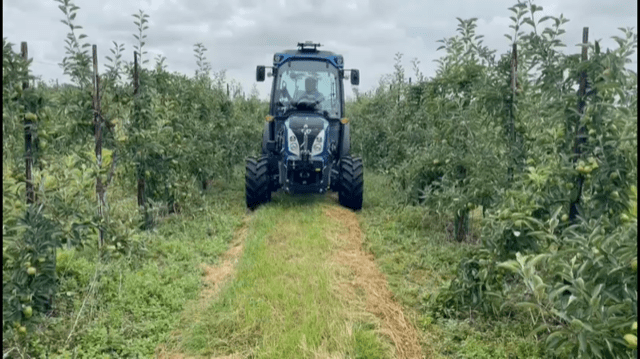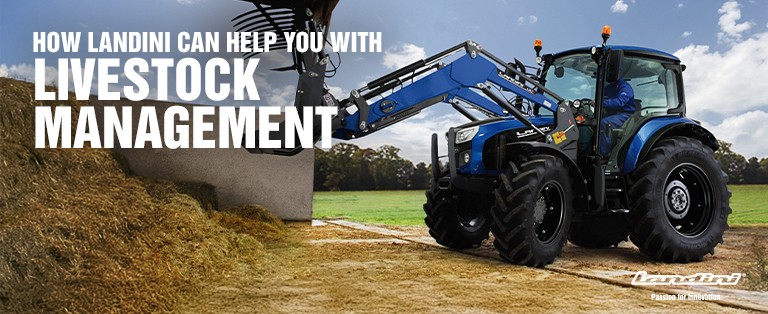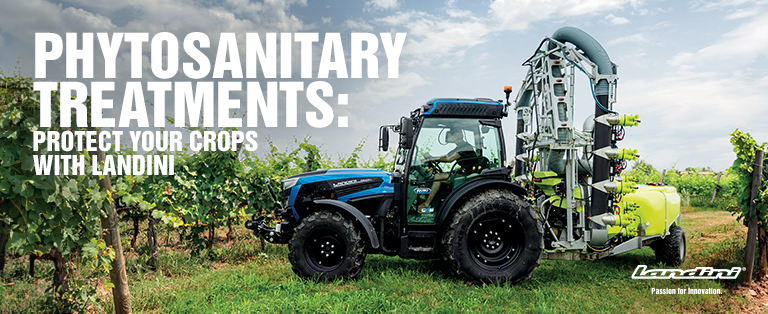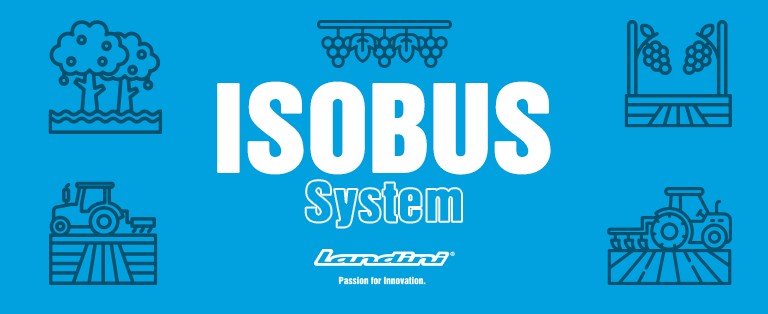Precison farming with the REX 4

Tractor and tech firms focus on vine and fruit grower needs.
Precision technologies offer huge potential to help establish and manage vine and fruit crops. In a series of demonstrations, tractor specialist Landini has been working with technology firms to bring growers up to date on what’s possible.
Requiring arrow-straight rows for equal spacing, light interception, growth and ease of treatment and harvesting, fruit and vine crop establishment of is a task ideally suiting satellite-guided tractor steering. Pass-to-pass parallel repeatability is ideal not only for establishment, but then for subsequent operations such as mowing and spraying, using the same recorded A-B lines.
But on many orchard and vineyard enterprises, precision technologies have much wider potential to ease workloads and improve crop yields and quality, believes Luke Barnard, precision farming specialist at AgriArgo UK, the distributor of Landini and McCormick tractors.
Demonstrations
“Recent demonstrations in conjunction with Horsepower UK, our Kent dealer, allowed us to illustrate on a Landini REX4-100F tractor how auto-steering using a TopCon AES-35 retro-fit electric steering system, can aid planting and subsequent operations,” he explains.
“This led to discussions regarding other technologies with potential benefits, including auto spray control, altering the application rate and nozzle sections on-the-move to apply only as much of a product as necessary, and only where required.
“Working with precision technology firm LH Agro, we also demonstrated the value of crop scanning in the specialist sector. TopCon CropSpec optical sensors, which measure leaf reflectance to determine chlorophyll content – which correlates to nitrogen concentration – offer obvious further benefits for crop management when spraying.”
Equipping the tractor with the necessary equipment, including a sprayer flow rate controller, allowed the team to show how the sprayer then automatically switches on/off the left/right sections and applies the required rate, based on the tractor’s forward speed or, for greatest accuracy, a variable rate map.
“The data recorded by CropSpec sensors is exported to the farm PC, and in this way, with each spraying pass the customer can build comprehensive data of each field,” says Luke.
“Potential weak areas are quickly identified for targeted disease/pest control, while where the crop is shown to be growing well, inputs can be reduced.”
On a subsequent local demonstration tour, the three firms were then able to show the value of technology including sprayer control and auto-steer to host and visiting growers.
“On one farm we were given a field recorded as 3.85ha to work with, but mapping it with our equipment indicated it was actually 3.45ha, showing immediately how greater steering accuracy can save inputs and money on every pass,” says Luke.
“RTK (real time kinematic) signal guidance, with its repeatability variation of less than 2.5cm, can really help here. From the A-B line we established, we identified in the first row that the tractor was 1.4m off course by the time it had travelled halfway up the field. Had it been planted with RTK guidance, it would have been possible to plant an extra row of trees, offering a considerable return on auto-steering investment.
“The time and product saving from auto shut-off at row ends and auto-steer in the rows attracted considerable interest. On one host farm which ran an ISOBUS-controlled fertiliser spreader, which allows the tractor and spreader to communicate with each other, CropSpec data enabled on-the-go nitrogen rate control via this.
“Of equal importance, though, is the data captured by the spray controller. It’s simple to create maps of the rates applied to each field, which also show if any areas were missed.
“We now want to work with a grower using guidance and spray control to investigate more deeply the value of Cropspec ‘greenness’ recording over a season, correlating this with yield data, crop density and soil scans/tests.
“As we develop use of this technology further, and link it with drone tech that agronomy firms are trialling, we’ll gain further evidence of gathered data’s value and how it correlates to tree/plant density, crop yield, crop quality and more. And this will be as useful in vineyards as it is in orchards.”



